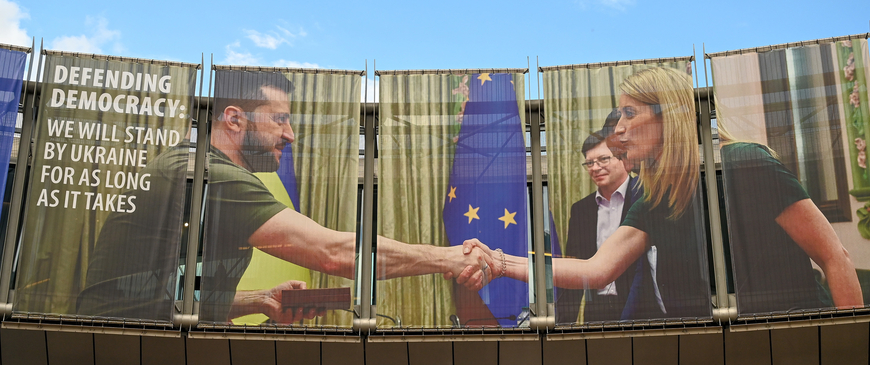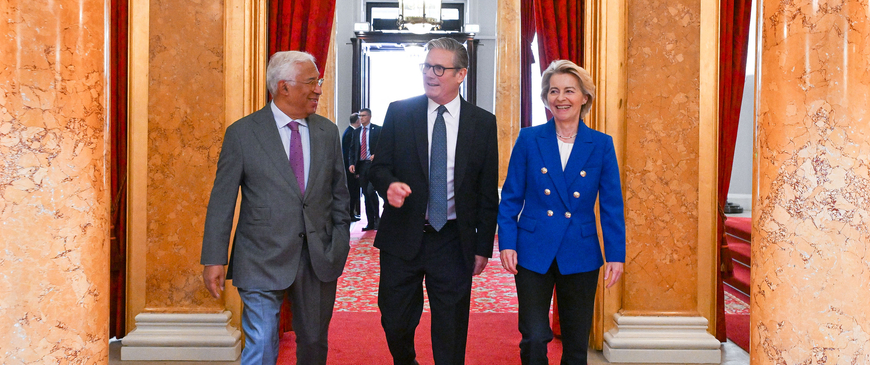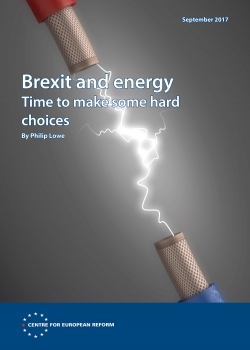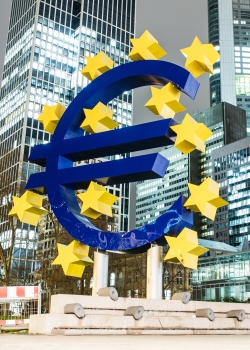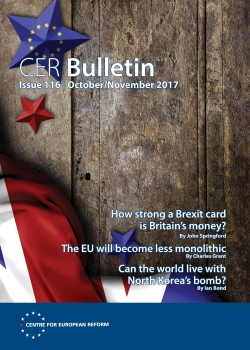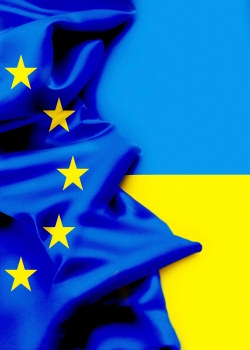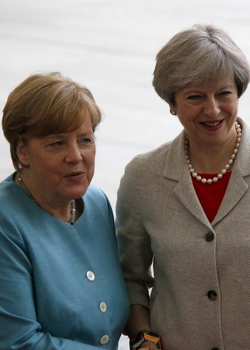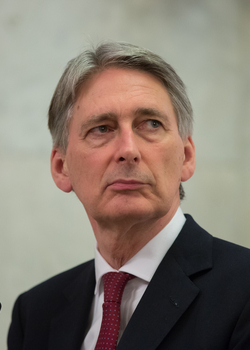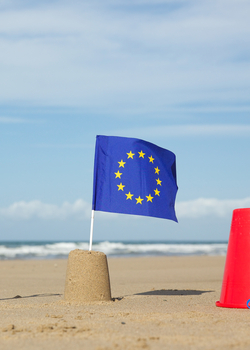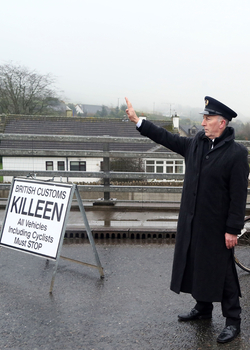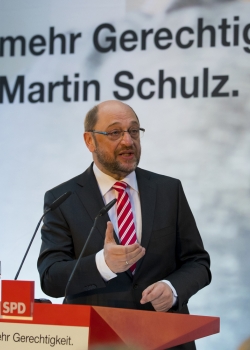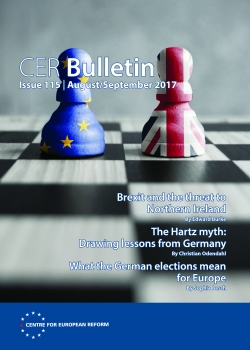Research
Crunch time in Catalonia: Why Spain needs a constitutional overhaul
04 October 2017
Catalonia's illegal referendum has resulted in a constitutional crisis in Spain. Madrid needs to urgently revise the country's model of regional government.
How the ECB should respond to a German fiscal boost
26 September 2017
A German stimulus has the potential to help the eurozone economy. But how the ECB reacts is key.
Brexit and energy: Time to make some hard choices
25 September 2017
If Britain quits the EU’s single energy market, it will have to invest more in electricity generation, pay higher prices and accept a bigger state role in the energy sector.
Is the eurozone really out of the woods?
22 September 2017
Can the eurozone avoid another crisis without further significant reforms? Much will depend on the longevity of the current upturn and the depth of the next downturn.
Bulletin Issue 116 - October/November 2017
19 September 2017
- How strong a Brexit card is Britain's money?, John Springford
- The EU will become less monolithic, Charles Grant
- Can the world live with North Korea's bomb?, Ian Bond
How strong a Brexit card is Britain's money?
19 September 2017
Britain’s strongest card in the negotiations is the money that the 27 claim it owes to the EU. But the money card gives Britain a pair rather than a flush.
The EU will become less monolithic
19 September 2017
The EU is becoming less monolithic and will develop tiers of membership. This could re-energise the enlargement process and neighbourhood policy – and may allow the UK to re-engage one day.
Can the world live with North Korea's bomb?
19 September 2017
The world should stop pretending that North Korea will give up its nuclear weapons, and focus on minimising the risks of further proliferation and of accidental or deliberate conflict.
How the West can contain - and end - the conflict in Ukraine
15 September 2017
New US sanctions on Russia prevent a backroom Trump-Putin deal on Ukraine, but they also threaten Western unity. They should prompt the EU to re-invigorate the Minsk agreement.
European policy in Asia: Getting past mercatorism and mercantilism
07 September 2017
Asia is a dangerous place, and closer to Europe than most Europeans think. They cannot leave Trump's America to tackle all Asia's security problems.
Could Germany end up with a minority government?
04 September 2017
The SPD has probably bottomed out and a centre-right coalition might not have the numbers. But neither the SPD nor the Greens are keen on the junior role under Merkel.
What the German elections mean for Brexit
30 August 2017
The German elections will not affect the outcome of Brexit, whatever coalition partner Angela Merkel may choose.
Make German politics interesting again
18 August 2017
Merkel is disarming the SPD, which is too cautious to promise real change, while Die Linke’s radicalism is poisoning the SPD’s only possible route to power.
Why Brexiters should get behind Philip Hammond's transition
01 August 2017
A comprehensive transition that includes continued membership of the single market and customs union is ultimately in the interest of hardliners in the British government.
Liberalism under attack: Is the EU a fortress or a sandcastle?
27 July 2017
The EU cannot rely on partnership with Trump’s America to defend the international liberal order. It must do more to protect its values and interests.
Brexit and the threat to Northern Ireland
20 July 2017
A hard Brexit risks many of the gains of twenty years of peace and cross-border co-operation in Northern Ireland. Only a special EU status can stop the rot.
The Hartz myth: Drawing lessons from Germany
20 July 2017
Germany's Hartz labour market reforms were no miracle cure. Rather than copying them, the rest of Europe should learn more nuanced lessons from the German experience.
Bulletin Issue 115 - August/September 2017
20 July 2017
- Brexit and the threat to Northern Ireland, Edward Burke
- The Hartz myth: Drawing lessons from Germany, Christian Odendahl
- What the German elections mean for Europe, Sophia Besch
What the German elections mean for Europe
20 July 2017
Germany's next chancellor won't be able to govern alone. A coalition of parties with differing views on Eurozone reform and German military power will shape Berlin's Europe policy after the election.
Arrested development: Why Brexit Britain cannot keep the European Arrest Warrant
10 July 2017
The European Arrest Warrant (EAW) has made it easier for the UK to extradite criminals. But once it leaves the EU, Britain will find it almost impossible to negotiate as good an arrangement as the EAW.

